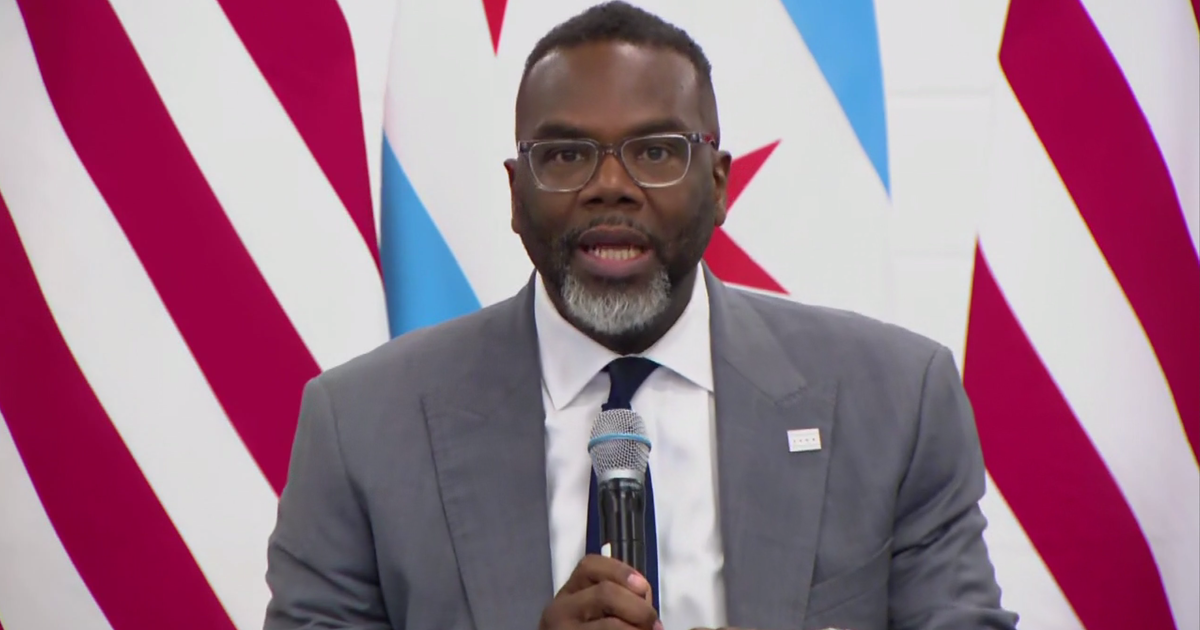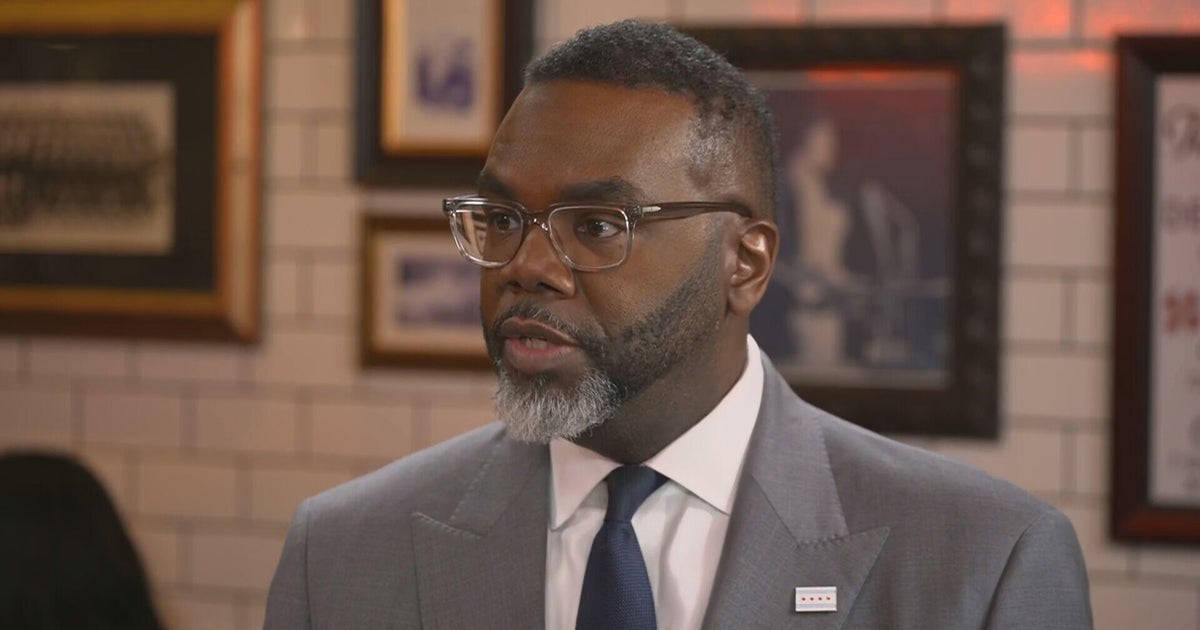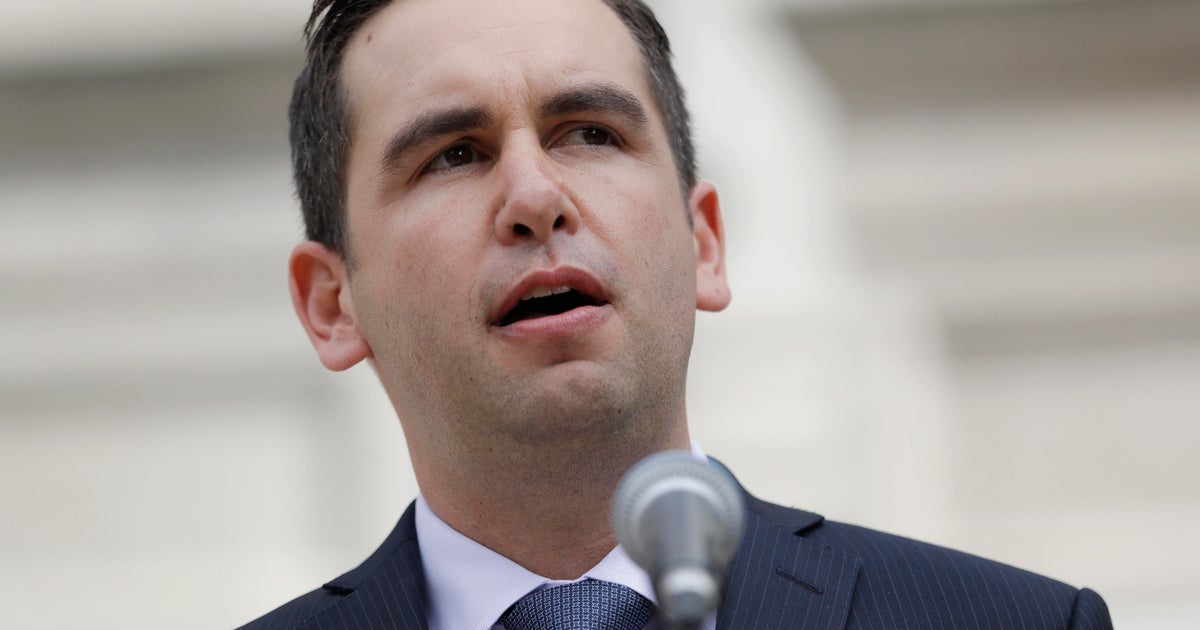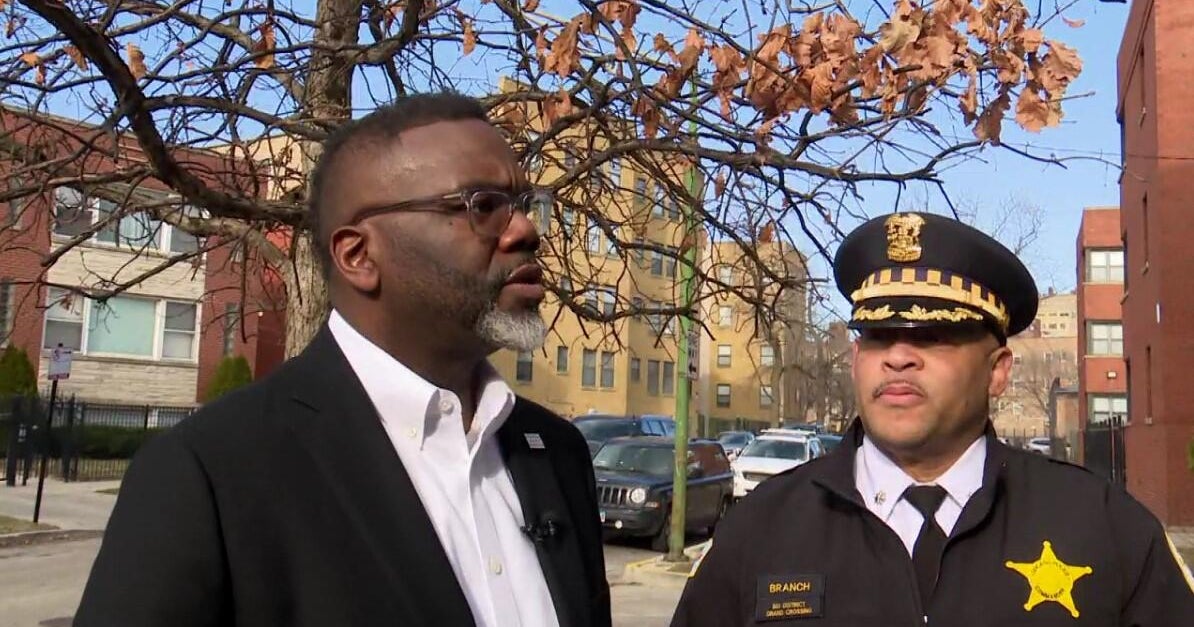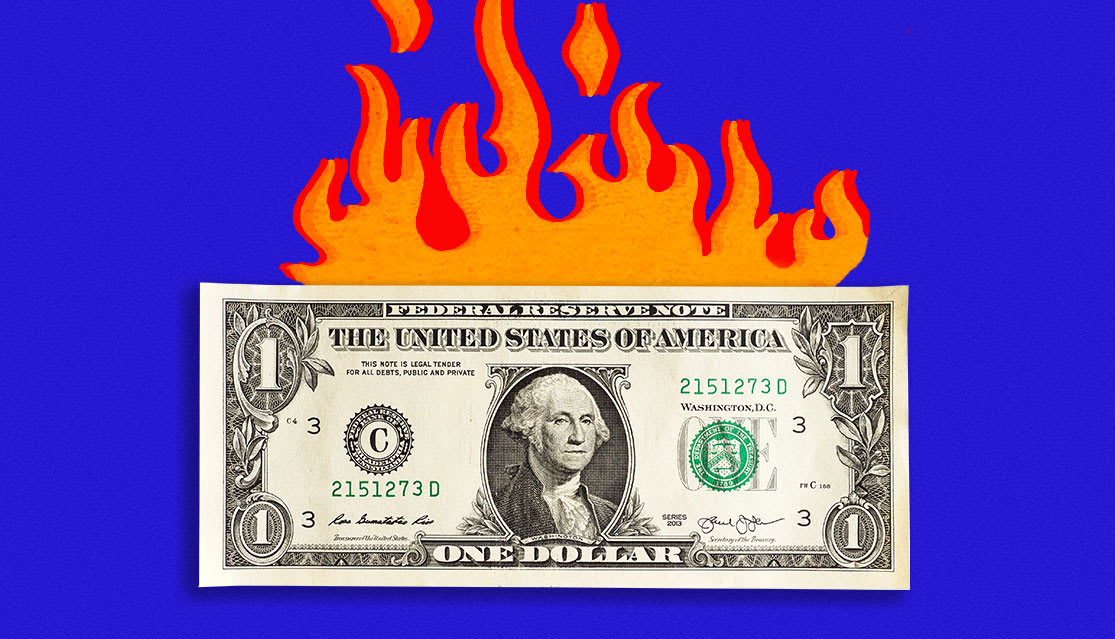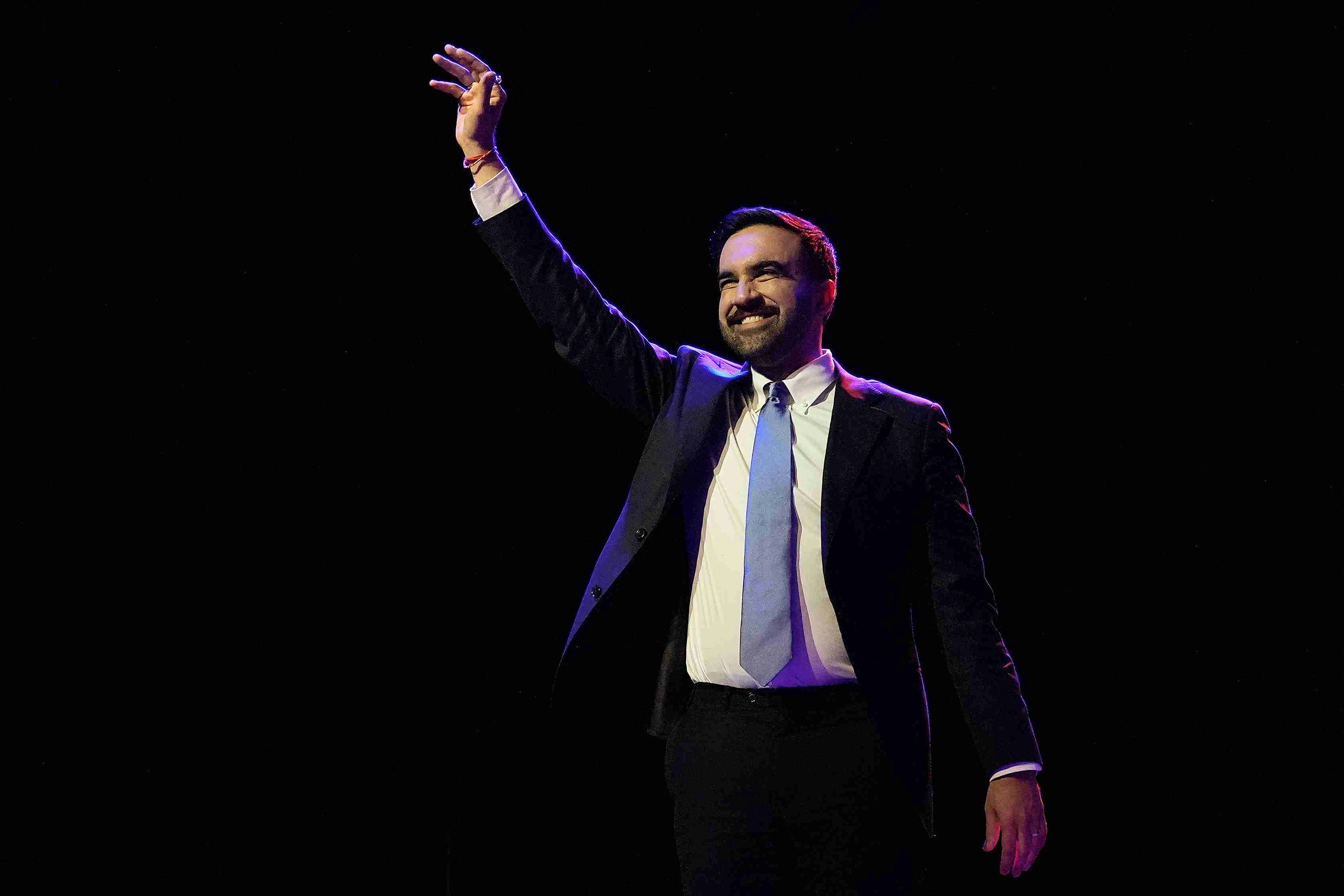Chicago Mayor Lori Lightfoot loses reelection bid; challengers advance to runoff
Paul Vallas and Brandon Johnson will meet in a runoff to be the next mayor of Chicago after voters on Tuesday denied incumbent Lori Lightfoot a second term, issuing a rebuke to a leader who made history as head of the nation's third-largest city.
Lightfoot, the first Black woman and first openly gay person to lead the city, failed in her fight for reelection after four tumultuous years in office.
It was the first time in 40 years that an incumbent Chicago mayor was defeated after one term, when Jane Byrne lost to Harold Washington, CBS Chicago reported.
With about 98% of the vote counted, Vallas was leading with 34% and Johnson was in second place with 20%, the station said. Lightfoot trailed in third place with 17%. Jesus "Chuy" Garcia was in fourth with 14%. No other candidate reached double-digits.
Lightfoot, a former prosecutor and head of a city police review board, faced multiple candidates. They hammered her over a spike in crime that began during the COVID-19 pandemic and a leadership style they say is unnecessarily combative.
Speaking to supporters Tuesday night, Lightfoot called being Chicago's mayor "the honor of a lifetime."
"Regardless of tonight's outcome, we fought the right fights and we put this city on a better path," Lightfoot said. She told her fellow mayors around the country not to fear being bold.
"We were fierce competitors in these last few months, but I will be rooting and praying for our next mayor to deliver for the people of the city for years to come," Lightfoot said, according to WBBM.
At his victory party, Vallas noted that Lightfoot had called to congratulate him and asked the crowd to give her a round of applause. In a nod to his campaign promises to combat crime, he said that, if elected, he would work to address public safety issues.
"We will have a safe Chicago. We will make Chicago the safest city in America," Vallas said.
The April runoff will offer voters starkly contrasting options.
Vallas served as an adviser to what CBS Chicago calls "the right-leaning" Fraternal Order of Police during its negotiations with Lightfoot's administration. He has called for adding hundreds of police officers to patrol the city, saying crime is out of control and morale among officers has sunk to a new low during Lightfoot's tenure.
Vallas has said the city needs to "take the handcuffs" off officers by easing restrictions on police foot pursuits and vehicle chases, the station points out.
Johnson, a Cook County commissioner, received about $1 million from the Chicago Teachers Union for his campaign and had support from several other progressive organizations, including United Working Families. The former teacher and union organizer has argued that the answer to addressing crime is not more money for police but more investment in mental health care, education, jobs and affordable housing, and he was accused by rivals such as Lightfoot of wanting to defund the police.
Johnson has avoided the word "defund" during the race, and his campaign says he doesn't want to cut the number of police officers. But in a 2020 radio interview, Johnson said defunding is not just a slogan but "an actual real political goal," and he sponsored a nonbinding resolution on the county board to redirect money from policing and jails to social services.
Lightfoot criticized Vallas as too conservative for Chicago and for welcoming support from the police union's controversial leader, who defended the Jan. 6 insurrectionists at the Capitol and equated Lightfoot's vaccine mandate for city workers to the Holocaust.
During the campaign, Lightfoot touted her record of investing in neighborhoods and supporting workers, such as by increasing the minimum wage to $15 an hour. She also noted that the city had navigated unprecedented challenges, including the pandemic and its economic and public safety fallout, and protests over policing.
"The world is very different than it was four years ago. I believe that I'm still the right person and I think the voters will validate that, but we've been through a lot," Lightfoot said after a rally on the city's West Side during the final days before the election. "We can't go back."
Lightfoot was the first mayor of a major U.S. city to face reelection following the pandemic, the recession and the crime wave that's occurred in many places. Those factors weighed on some voters as they made their decisions Tuesday.
"Lori has had her chance," said Lonnell Jolly, a 45-year-old customer service representative who lives on the West Side and voted for businessman Willie Wilson. "Since Lori Lightfoot has been in office, it seems like crime has gotten worse."
Lindsey Hegarty, a 30-year-old paralegal who lives on Chicago's North Side, said she backed Johnson because "he seemed like the most progressive candidate on issues like policing, mental health" and public transit.
Race also played a factor as candidates courted votes in the highly segregated city, which is closely divided in population among Black, Hispanic and White residents.
Lightfoot has accused Vallas of using "the ultimate dog whistle" by saying his campaign is about "taking back our city," and of cozying up to the president of the Fraternal Order of Police, whom she calls a racist. A recent Chicago Tribune story also found Vallas's Twitter account had liked racist tweets and tweets that mocked Lightfoot's appearance and referred to her as masculine.
Vallas said he wasn't responsible for the liked tweets, which he called "abhorrent," and suggested someone had improperly accessed his account.
But Lightfoot and some of her supporters saw some of the criticism of her leadership as motivated by racism, sexism and anti-gay sentiment.
"No other mayor has been asked to change this city within four years," said city Treasurer Melissa Conyears-Ervin, who is Black, and noted that White mayors like Emanuel and Richard Daley served multiple terms. "When we get in the game, the rules change."
At a weekend campaign stop, Vallas said he is focused on things like public safety, Chicago's "demoralized" police department and the number of residents "fleeing" the city's school district.
"It's all a product of bad leadership," Vallas said.
A former city budget director who also led school systems in Chicago, New Orleans and Philadelphia, Vallas lost a 2019 bid for mayor. This time, he has been laser-focused on public safety, saying police officers who left the force under Lightfoot's administration will return if he's elected.
It seems to have resonated with voters, such as Antwoin Jackson, who are concerned about an uptick in crime. Jackson said he supported Lightfoot four years ago but cast his ballot for Vallas in Tuesday's election because he said Lightfoot "did not hold control over the violence in the communities." Jackson said he feels particularly unsafe when riding public transit.
